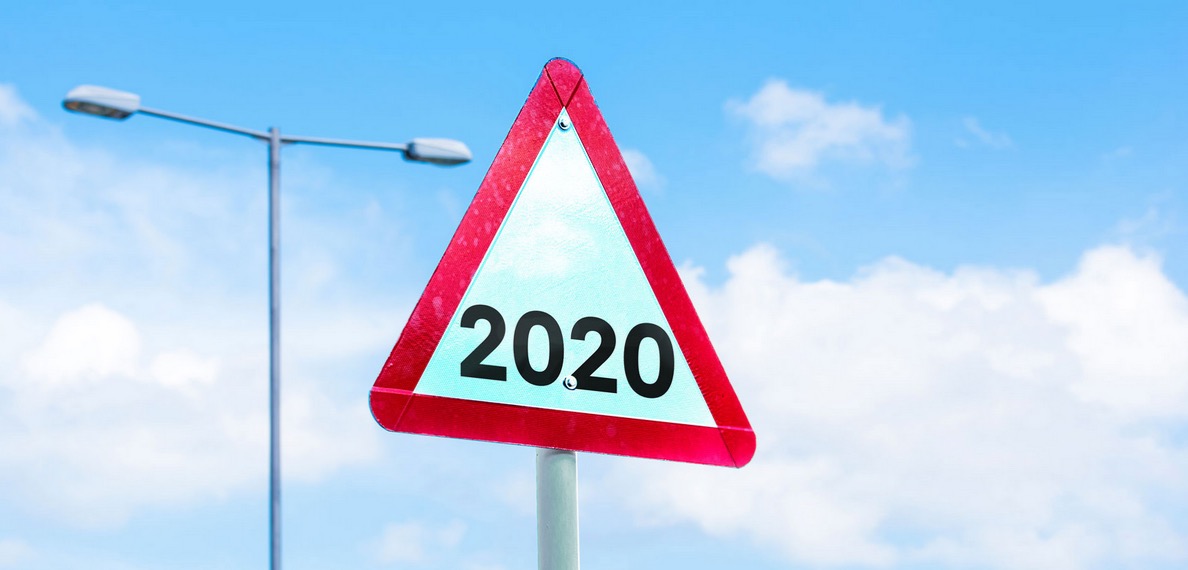by Kevin McCreadie, Chief Executive Officer and Chief Investment Officer, AGF Management Ltd.
The United States election is now less than a year away and the attention it garners in the coming months will be unprecedented. At no time recently has the political climate been so divisive as it is today, all the while being played out in a hyped-up communications age that scrutinizes every move made and every word tweeted by the candidates running for office and the pundits who influence the race.
But for all the potential implications the election holds, investors need to be careful not to get overly caught up in the spectacle. While politics will play an important role in shaping markets in 2020, it’s the late-cycle global economy that is most important and the direction it takes over the next year may have the biggest impact on asset prices.
If struck, [a U.S.-China trade] agreement would no doubt remove a major headwind for the economy and provide a potential boost to risk assets like stocks and high-yield credit.
Kevin McCreadie, CEO and Chief Investment Officer, AGF Management Limited
That’s not to say the two don’t mix. Government has had a hand in many of the issues that have dogged economic conditions this past year, not just in the U.S. where the longest expansion on record has been teetering, but elsewhere around the world where slower growth and recession risks have also been a concern.
None of these issues is bigger than the ongoing trade impasse between the U.S. and China, which according to a recent United Nations report, has been a “lose/lose” for both countries and because of the tit-for-tat tariffs levied, is estimated to have cost the global economy tens of billions of dollars.
Though tenuous, the recent trade truce between the two sides is a step in the right direction. It could very soon result in a phase one deal that includes the U.S. agreeing to cancel additional tariffs on Chinese imports set to take effect in mid-December, while also rolling back some of its existing duties. In return, China would likely need to address U.S. intellectual property and financial services concerns as well as commit to purchasing more U.S. agricultural products going forward.
If struck, such an agreement would no doubt remove a major headwind for the economy and provide a potential boost to risk assets like stocks and high-yield credit. But the opposite might also be true if phase one of the deal is delayed, new tariffs are put in place, or worse, negotiations break down entirely.
Even if phase one gets done, it’s unclear whether there is enough shared political will to continue hammering out a more comprehensive deal. China, for example, may decide it’s better to see how the U.S. election plays out before getting back to the table. It would likely prefer to negotiate with a moderate like Joe Biden rather than U.S. President Trump, but would be leery of someone like Elizabeth Warren winning the Democratic nomination given her hard stance on human rights and the escalating protests in Hong Kong.
The ongoing impeachment process also might not help. While it’s unlikely that Trump will be convicted early in the New Year, a trial for his ouster could still be a distraction.
In any case, the trade impasse between China and the U.S. may finally be coming to a head after more than a year of false starts and stalemating, giving investors some much needed clarity on the issue, if not exactly what they wish for.
The same is true of Brexit, another stubborn economic headwind—especially for Europe—that could come to some type of resolution at the end of January.
The outcomes of these two highly-charged political decisions will also continue to hold sway over central bank policy, including the U.S. Federal Reserve that is back in a holding pattern after cutting interest rates three times earlier this year.
Ultimately, the global economy hangs in the balance heading into 2020 and could go either way. That doesn’t mean a recession is imminent if trade talks between China and the U.S. break down, or Britain leaves the European Union without a deal. In fact, economic data has steadied in recent weeks and remains resilient in many parts of the world, but at this late stage in the cycle, it may not take much to tip it over.
In this environment, investors will need to keep close watch on economic indicators such as weekly U.S. jobless claims and global purchasing manager indexes, which fell throughout 2019, but may be close to bottoming.
They will need to weigh their various options carefully as well. Stock and bond markets could turn on a dime depending on the direction the economy takes and allocations to both may be safer when complemented by alternative asset classes and strategies that offer the potential of non-correlated returns.
In the end, the global economy could be in much better shape heading into 2020 than many investors might have expected just a few months ago. But when it comes to the economic cycle, there’s no question it’s getting late and investors need to carefully consider what impact that could have on their portfolios.
Kevin McCreadie is Chief Executive Officer and Chief Investment Officer at AGF Management Ltd.
Copyright © AGF Management Ltd.













